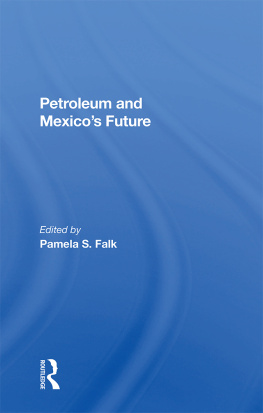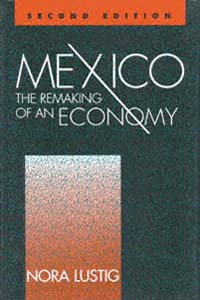| THE BROOKINGS INSTITUTION |
| The Brookings Institution is an independent organization devoted to nonpartisan research, education, and publication in economics, government, foreign policy, and the social sciences generally. Its principal purposes are to aid in the development of sound public policies and to promote public understanding of issues of national importance. |
| The Institution was founded on December 8, 1927, to merge the activities of the Institute for Government Research, founded in 1916, the Institute of Economics, founded in 1922, and the Robert Brookings Graduate School of Economics and Government, founded in 1924. |
| The Board of Trustees is responsible for the general administration of the Institution, while the immediate direction of the policies, program, and staff is vested in the President, assisted by an advisory committee of the officers and staff. The by-laws of the Institution state: It is the function of the Trustees to make possible the conduct of scientific research, and publication, under the most favorable conditions, and to safeguard the independence of the research staff in pursuit of their studies and in the publication of the result of such studies. It is not a part of their function to determine, control, or influence the conduct of particular investigations or the conclusions reached. |
| The President bears final responsibility for the decision to publish a manuscript as a Brookings book. In reaching his judgment on competence, accuracy, and objectivity of each study, the President is advised by the director of the appropriate research program and weighs the views of a panel of expert outside readers who report to him in confidence on the quality of the work. Publication of a work signifies that it is deemed a competent treatment worthy of public consideration but does not imply endorsement of conclusions or recommendations. |
| The Institution maintains its position of neutrality on issues of public policy in order to safeguard the intellectual freedom of the staff. Hence interpretations or conclusions in Brookings publications should be understood to be solely those of the authors and should not be attributed to the Institution, to its trustees, officers, or other staff members, or to the organizations that support its research. |
Leonard Abramson
Michael H. Armacost
Elizabeth E. Bailey
Zo Baird
Alan M. Dachs
Kenneth W. Dam
D. Ronald Daniel
Robert A. Day
Bart Friedman
Stephen Friedman
Henry Louis Gates, Jr.
Teresa Heinz
Samuel Hellman
Robert A. Helman
Ann Dibble Jordan
Breene M. Kerr
Thomas G. Labrecque
Jessica Tuchman Mathews
David O. Maxwell
Constance Berry Newman
Maconda Brown O'Connor
Samuel Pisar
Steven L. Rattner
Rozanne L. Ridgway
Judith Rodin
Warren B. Rudman
Michael P. Schulhof
Robert H. Smith
Joan E. Spero
Vincent J. Trosino
Stephen M. Wolf
John D. Zeglis |
Vincent M. Barnett, Jr.
Rex J. Bates
Barton M. Biggs
Louis W. Cabot
Frank T. Cary
A.W. Clausen
John L. Clendenin
William T. Coleman, Jr.
Lloyd N. Cutler
Bruce B. Dayton
Douglas Dillon
Charles W. Duncan, Jr.
Walter Y. Elisha
Robert F. Erburu
Robert D. Haas
Andrew Heiskell
F. Warren Hellman
Roy M. Huffington
Thomas W. Jones
Vernon E. Jordan, Jr.
Nannerl O. Keohane
James T. Lynn
William McC. Martin, Jr.
Donald F. McHenry
Robert S. McNamara
Mary Patterson McPherson
Arjay Miller
Donald S. Perkins
J. Woodward Redmond
Charles W. Robinson
James D. Robinson III
David Rockefeller, Jr.
Howard D. Samuel
B. Francis Saul II
Ralph S. Saul
Henry B. Schacht
Robert Brookings Smith
Morris Tanenbaum
John C. Whitehead
James D. Wolfensohn
Ezra K. Zilkha |
|





